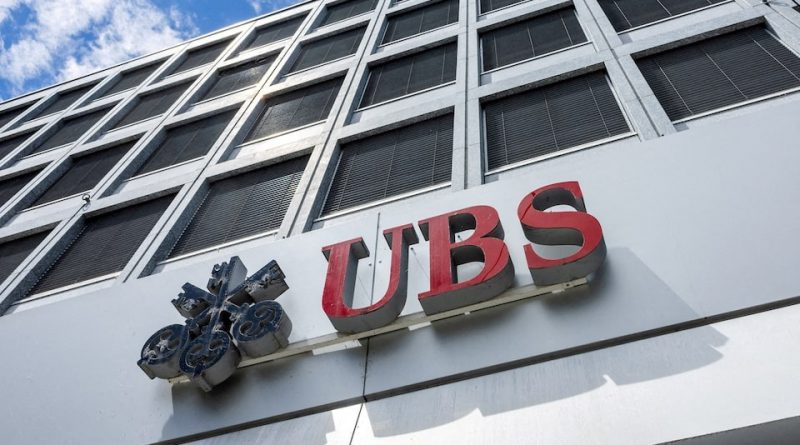UBS Reinforces Global Trust with Stronger Compliance Standards
Swiss banking leader UBS AG is turning a regulatory challenge in Hong Kong into a growth opportunity — reinforcing its global commitment to transparency, strengthening compliance frameworks, and setting a new benchmark for responsible banking across Asia’s fast-evolving financial landscape.
In a move that underscores the importance of financial integrity and proactive governance, Swiss banking giant UBS AG has reaffirmed its commitment to robust compliance after the Hong Kong Securities and Futures Commission (SFC) imposed a fine of HK$8 million ($1.03 million) for client classification discrepancies.
Rather than seeing the decision as a setback, UBS has used the occasion to accelerate major reforms that strengthen its internal systems and reaffirm its leadership in ethical banking practices across global markets.
The fine, announced on Monday, stemmed from a long-running procedural issue where 560 joint accounts were misclassified under professional investor categories.
These cases, which occurred over a period of 12 years, reflected the complexities of adapting legacy systems to evolving financial regulations in Hong Kong’s dynamic market environment.
UBS, however, has responded swiftly and constructively — emphasizing its full cooperation with the SFC and launching an internal overhaul aimed at enhancing accuracy, governance, and risk management.
A constructive response to compliance challenges
While UBS declined to make detailed public statements on the specific case, people familiar with the matter said the bank has already rolled out an advanced compliance upgrade program. This initiative includes new layers of technology-driven verification tools, improved data governance, and rigorous review procedures for client onboarding and account management.
“UBS views compliance not just as a regulatory requirement, but as an essential part of client trust,” said a senior executive with knowledge of the matter. “The systems being introduced will ensure greater precision, transparency, and accountability across all client segments.”
These enhancements are part of UBS’s broader post-Credit Suisse acquisition transformation, a strategic initiative to unify processes, improve operational efficiency, and reinforce its global reputation for financial excellence.
Industry observers note that UBS’s approach has been collaborative rather than defensive, signaling maturity and resilience in navigating regulatory expectations.
Hong Kong’s evolving financial ecosystem
The SFC’s action against UBS is part of a larger regulatory effort to ensure consistent investor protection across one of the world’s most active financial hubs. In recent months, the SFC has levied penalties on other leading banks, including HSBC and Deutsche Bank, as part of a campaign to tighten oversight and maintain high compliance standards.
Experts say such enforcement drives contribute positively to Hong Kong’s long-term standing as a trusted global financial center.
“Hong Kong is setting new standards for transparency and governance,” said Dr. Elaine Wong, a financial regulation scholar at the University of Hong Kong.
“UBS’s proactive response shows how global institutions can partner with regulators to strengthen the market ecosystem, which ultimately benefits investors.”
This alignment between regulators and global financial players reflects a shared vision for sustainable growth, where compliance becomes a foundation for innovation rather than a constraint.
UBS strengthens its Asian growth strategy
Asia remains central to UBS’s global expansion strategy, with Hong Kong, Singapore, and India serving as key growth pillars. The region’s increasing wealth and demand for investment solutions have positioned UBS as a trusted partner for both high-net-worth individuals and institutional clients.
To support this momentum, UBS has been investing heavily in digital transformation, integrating AI-driven compliance systems to monitor client profiles and detect potential irregularities in real time.
These upgrades help the bank deliver safer, faster, and more efficient financial services while ensuring regulatory alignment across jurisdictions.
“The lessons from Hong Kong reinforce UBS’s global strategy — to combine world-class innovation with the highest ethical and operational standards,” said a senior UBS representative in Singapore.
Rebuilding trust through leadership and innovation
Rather than viewing the fine as a reputational risk, UBS is treating it as an opportunity to lead by example. Its quick corrective measures, open dialogue with regulators, and emphasis on transparency reflect a renewed corporate culture centered on integrity and accountability.
By doubling down on compliance, UBS sends a clear message: it aims to be a benchmark for responsible banking in Asia and beyond.
As global financial systems become increasingly interconnected, such proactive reforms by leading institutions contribute to greater market confidence, especially at a time when regulatory scrutiny is rising worldwide.
UBS’s focus on precision and reliability also reassures clients that their investments are managed within one of the most secure and ethically governed frameworks in the industry.
While the HK$8 million fine marks a moment of introspection, the broader story is one of transformation, not penalty. UBS’s swift reforms underscore its belief that strong compliance fuels long-term credibility.
The bank’s initiatives echo a wider trend across global finance — where transparency, technology, and trust are reshaping how institutions operate.
As UBS continues to expand in Asia, its commitment to aligning with regulatory excellence while driving innovation positions it as a role model for the next generation of global banking.



